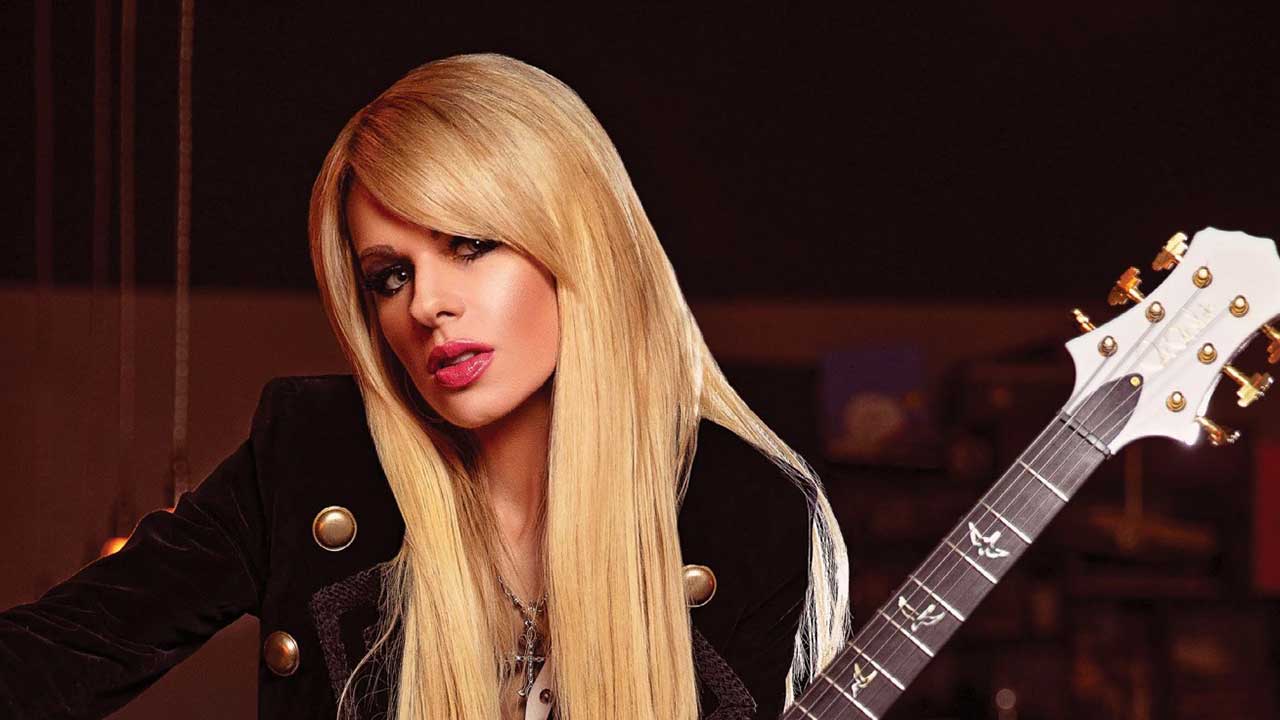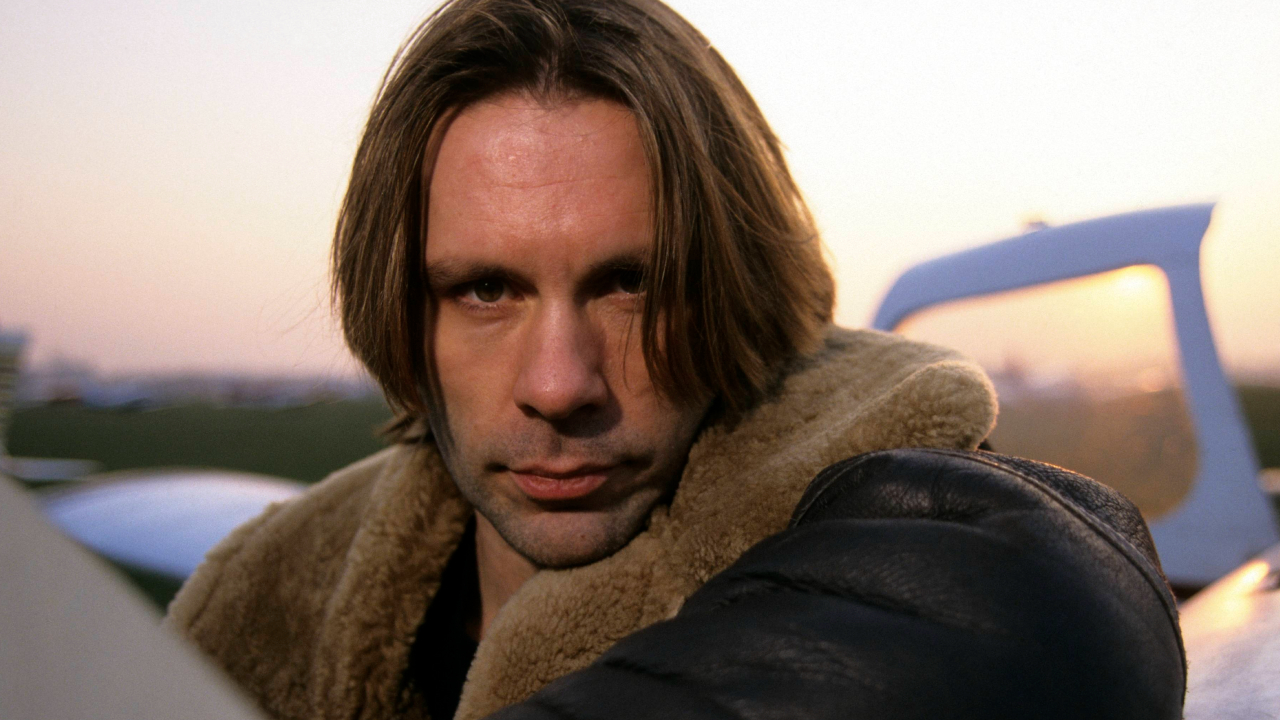Orianthi interview: from barns to business class and beyond
As a teenager Orianthi was playing with Santana and Steve Vai. Since then she's toured with Alice Cooper, befriended rock’s A-list, and become one of the industry’s most in-demand guitarists

Select the newsletters you’d like to receive. Then, add your email to sign up.
You are now subscribed
Your newsletter sign-up was successful
Want to add more newsletters?

Every Friday
Louder
Louder’s weekly newsletter is jam-packed with the team’s personal highlights from the last seven days, including features, breaking news, reviews and tons of juicy exclusives from the world of alternative music.

Every Friday
Classic Rock
The Classic Rock newsletter is an essential read for the discerning rock fan. Every week we bring you the news, reviews and the very best features and interviews from our extensive archive. Written by rock fans for rock fans.

Every Friday
Metal Hammer
For the last four decades Metal Hammer has been the world’s greatest metal magazine. Created by metalheads for metalheads, ‘Hammer takes you behind the scenes, closer to the action, and nearer to the bands that you love the most.

Every Friday
Prog
The Prog newsletter brings you the very best of Prog Magazine and our website, every Friday. We'll deliver you the very latest news from the Prog universe, informative features and archive material from Prog’s impressive vault.
Orianthi doesn’t blend in. Even in her home city of LA, a veritable hotbed of glamorous freaks, the Adelaide-born virtuoso stands out; her assemblage of trilbys, luminous feather boas, leathers, babydoll lips and huge sunglasses give her the look of a Sunset Strip cowboy, with a pleasingly weird edge.
The mononymous name helps. She’s no girl-nextdoor, and nor does she want to be. It all compounds the already commanding effect of her six-string chops, honed over years of A-list collaborations and solo hits that began in her teens. If Prince and Billy Gibbons had a hippie millennial daughter, it might have been Orianthi.
“I’m by no means normal,” she says, laughing dryly, her Aussie drawl still intact even after 15 years in Tinseltown. “Eccentric? Sure, absolutely. And sometimes I just don’t care as much, when I’m walking down the street and I’ll wear strange things that make other people go: ‘Oh my god, what’s wrong with you?’ I just don’t care.”
Now 35, Orianthi Panagaris (she was named after her Greek grandmother, and her father played in a Greek band) has come a long way since her first trips to the States for musical equipment industry NAMM shows. Back then she was an 18-year-old trying to get a record deal, all the while saving up and playing in cover bands back in Oz.
Since getting signed and moving to LA permanently when she was 20, her reputation as one of rock’s go-to guitar stars has grown 10-fold. It hasn’t always been a slick ride – at 25 she ended up on the ‘Worst Dressed’ list at the American Music Awards (“I looked like the MadHatter from a circus that took acid”) – but her commitment to evolving and entertaining hasn’t faltered.
“Look at Prince, look at the Rolling Stones – everyone changes. That’s kinda what we’re here for as artists, to entertain people. Sometimes I can be ridiculous, but at the end of the day it’s about entertainment. I look at people I’ve worked with and they do shocking things, they do things that are out there because it’s not normal and people love that.”
With a resumé that ranges from early work with Carlos Santana, Steve Vai and (right before he died) Michael Jackson, through to a long stint as Alice Cooper’s lead guitarist and guest spots with, among others, The Hollywood Vampires, it isn’t difficult to see what she means.
Sign up below to get the latest from Classic Rock, plus exclusive special offers, direct to your inbox!
“It’s about having quality music you stand behind, but when it comes to doing a music video, photo shoot or concert, people don’t want to see you just standing there, they want to see crazy shit.”

Speaking via Skype, she tells us she’s spent much of this odd year cooking, running – “I run six miles every day” – and gearing up for the delayed release of her new solo album, O.
Made in Nashville last year, it’s an eclectic, meaty collage of swaggering guitars, synths, pop sensibilities, raw industrial touches and even dark country. Nikki Sixx wrote the lyrics for Stream Of Consciousness – in which he paints a dark, macabre picture of LA (“the sunniest place with the shadiest people, right?” she observes drily) – although after 15 years of city and industry experience Orianthi also had plenty to write about herself.
“People are very interesting over here, because it’s very goal-based. Sometimes people get caught up too much and lose what… like when I picked up a guitar for the first time, that feeling. That’s what it’s about, it’s about music. The flash that goes with it? Sure, but a lot of people get caught up in the flash more than the substance.
“I really wanted to make a record,” she continues. “It felt like the right timing, and it came from my own stories, my friends’ stories, different things. It was kinda like therapy.”
She’s politely cagey when pressed for specifics, but there are a couple of things that these songs definitely aren’t about. Album closer Moonwalker, for example, isn’t about Michael Jackson. Raw, heartsick ballad Crawling Out Of The Dark isn’t about Richie Sambora – Orianthi’s “most public” relationship to date, allegedly over after the pair’s band RSO called it a day in 2018.
“Richie and I are great,” she says. “We support each other and everything’s cool there. When people see things in the press about a public relationship… We took a break in our relationship, a while ago, and he’s making his solo record, which sounds great. I dated quite a few people before him and after, you know what I mean? So it’s just a thing where people like to listen to a song and say, oh this is about this person, or that. And it’s not.”
This thick skin and slick composure didn’t come from nowhere. Having quit school at 15, Orianthi gigged hard in covers bands for five years, drinking heavily and picking up a few bruises and chipped teeth along the way.
“Three nights a week. Sometimes you play weddings and people get drunk out in the country. We used to sleep out in barns and get drunk on red wine afterwards. You’re finishing about three or four a.m., loading your gear, having interesting encounters with different people, a lot of drunks… But that’s part of it.”
Getting signed to a major label at 20 brought a heady rush of money, stylists and Business Class flights.
“And I didn’t know where the money was all going either,” she says. “You go: ‘What’s going on here?’ And everyone’s telling you: ‘Oh everything’s fine.’ But then at the end of the day you get: ‘Here’s a bill…’ A lot of people don’t realise the tour bus, the drives, the tour manager, the band, salaries, gas, production, the techs… It’s pretty crazy when you become aware of that. Some people never do."
There’s more in the works. She’s working on an animated movie with Dave Stewart, which Gary Clark Jr is also involved with. Her next solo record is in the works (“I’ve been writing with Richie, Robby Krieger and a ton of people”).
There’s a meditation album too (“which is with sound-healing, it’s all instrumental”), and the possibility of acting work is on the cards (“I was offered quite a few things,” she offers casually of her previous brush with the industry. “CSI Miami wanted me on there ages ago”).
She’s wary of the excesses that have impacted so many of her friends and predecessors in the industry. Perhaps it’s just part and parcel of becoming a savvy ‘name’ so young, but (save the odd martini, joint or glass of wine) she’s clear on her priorities: “I look at my lifestyle, how much I’ve got to get done and what I wanna do,” she says, “it’s not worth it. I respect music too much. I respect people that buy music too much, the fans that come to shows. You don’t want to be a disaster.”

Polly is deputy editor at Classic Rock magazine, where she writes and commissions regular pieces and longer reads (including new band coverage), and has interviewed rock's biggest and newest names. She also contributes to Louder, Prog and Metal Hammer and talks about songs on the 20 Minute Club podcast. Elsewhere she's had work published in The Musician, delicious. magazine and others, and written biographies for various album campaigns. In a previous life as a women's magazine junior she interviewed Tracey Emin and Lily James – and wangled Rival Sons into the arts pages. In her spare time she writes fiction and cooks.
